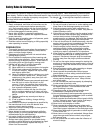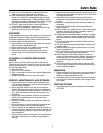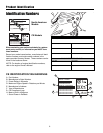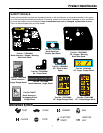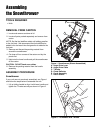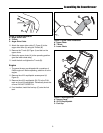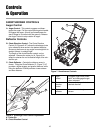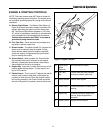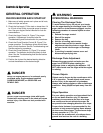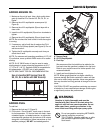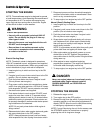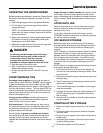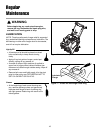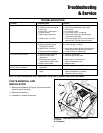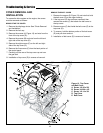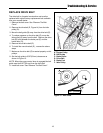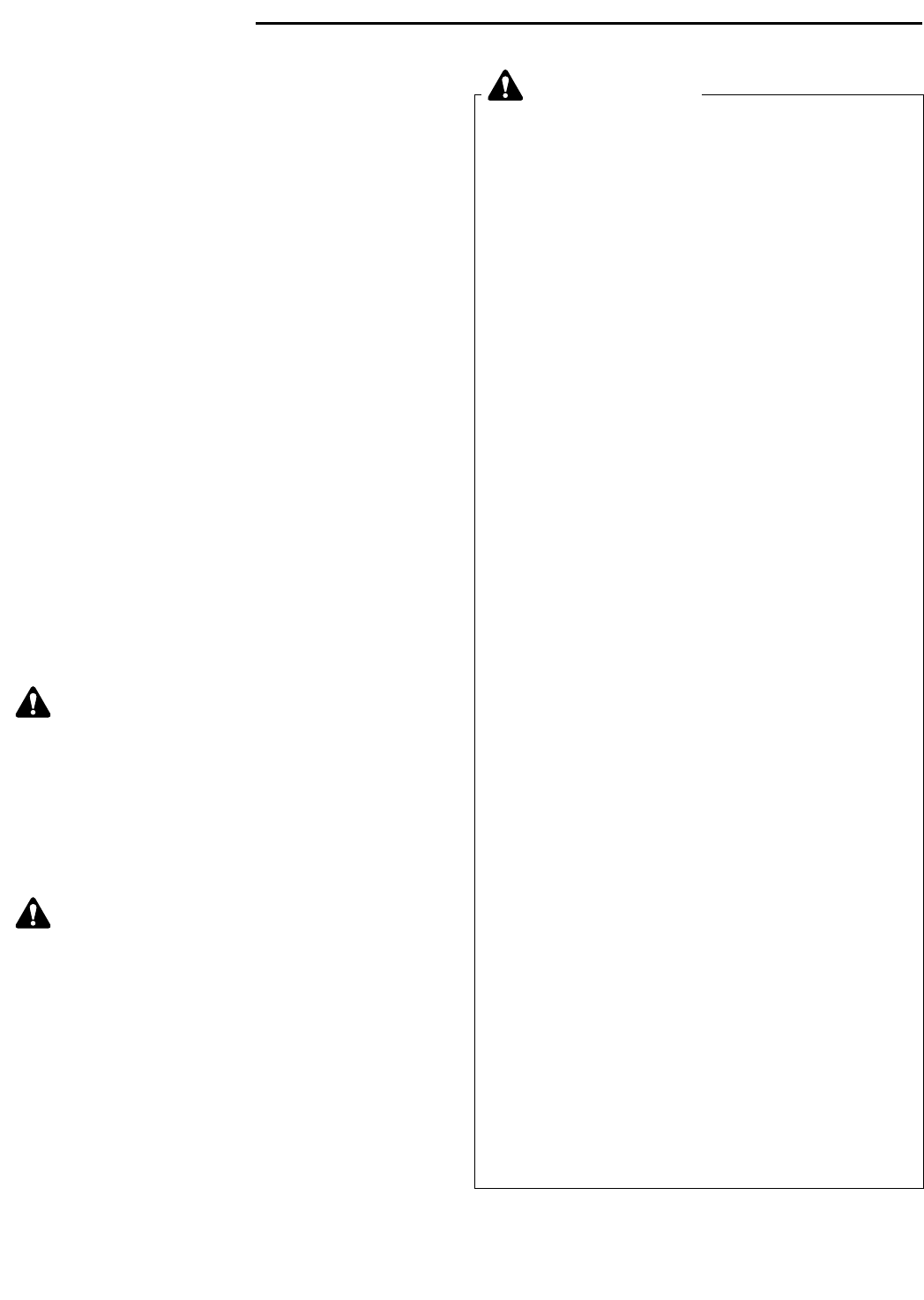
12
GENERAL OPERATION
CHECKS BEFORE EACH START-UP
1. Make sure all safety guards are in place and all nuts,
bolts and clips are secure.
2. Check the fuel supply. Fill the tank no closer than 1/4
to 1/2 inch of top of tank to provide space for expan-
sion. See your engine Owner’s Manual for fuel rec-
ommendations.
3. Check the Auger Control (A, Figure 7) for proper
operation. If adjustment is required, see the
Troubleshooting and Service section for procedures.
4. Check the Chute Direction Control (B, Figure 7) for
proper operation. The discharge chute should rotate
freely in both directions. See the Troubleshooting and
Service section for procedures.
5. Check the Chute Deflector (C, Figure 7) for proper
operation. The deflector should pivot freely up and
down. See the Troubleshooting and Service section
for procedures.
6. Position the chute at the desired starting direction
and set the deflector at the desired angle.
Controls & Operation
DO NOT clean out discharge chute with hands.
Contact with moving parts in the chute will cause
serious injury. Use clean-out tool provided with
machine.
DANGER
Never run engine indoors or in enclosed, poorly
ventilated areas. Engine exhaust contains
CARBON MONOXIDE, an ODORLESS and
DEADLY GAS.
DANGER
OPERATIONAL WARNINGS
Clearing The Discharge Chute
To avoid serious injury, do not put your hands
into the auger housing or discharge chute. If the
auger stalls or chute becomes plugged, use the
following procedure to remove objects or clear
the chute:
1. Release the auger control.
2. Shut off the engine.
3. Remove the key.
4. Wait for all moving parts to stop.
5. Use the clean-out tool to remove foreign
objects and clear the chute or auger. Never
put your hands into the auger or discharge
chute.
6. If servicing is needed, remove cover and
disconnect spark plug wire.
Discharge Chute Adjustment
Release the auger control and make sure the
auger has STOPPED before rotating the
discharge chute or adjusting the deflector. DO
NOT place hands near the auger while the engine
is running.
Thrown Objects
Objects can be thrown by the snowthrower while
it is in operation. Thrown objects could cause
serious injury to the operator or bystanders.
Always wear safety goggles or other suitable eye
protection. Keep people and pets away from the
area.
Slope Operation
For your safety, operation on slopes should be in
an up and down direction only. If it becomes
necessary to move across the face of a slope,
use caution and do not activate the auger. Be
very careful when changing direction on a slope.
Proper winter footwear is recommended for the
operator to help prevent slipping. Never attempt
to clean snow from slopes. The maximum slope
for any operation is 17.7% (10º).
Do not use the snowthrower on surfaces above
ground level such as the roof of a building.
WARNING



